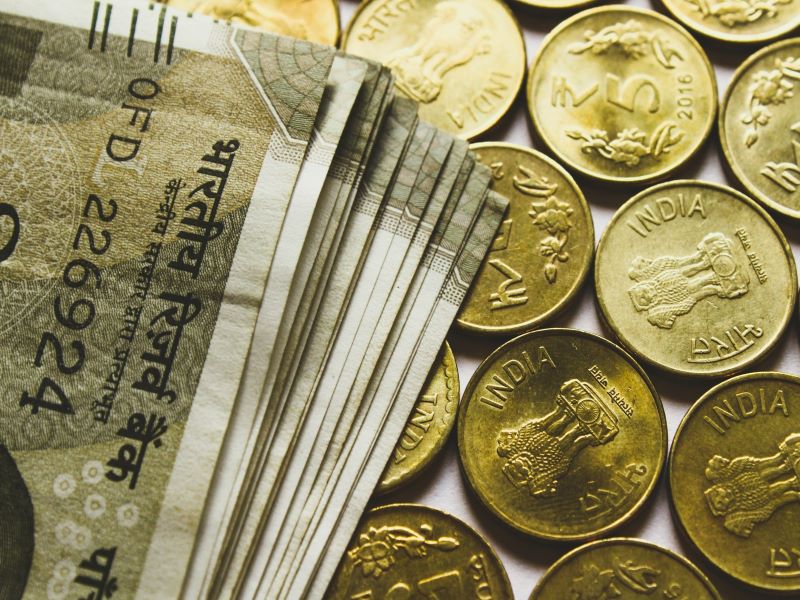 Indian economy
Indian economy
India’s tax revenue grows beyond expectations, shows recent data
India’s direct taxes have experienced a significant and sustained increase in growth over the time. The Gross Direct tax collection for the year 2023-24 (as on March 17, 2024) registered an increase of 18.7% over the corresponding period last year (2022-23).
The gross collection of Direct Taxes (before adjusting for refunds) for the Financial Year 2023-24 stands at Rs. 22.2 lakh crore compared to Rs. 18.7 lakh crore in the corresponding period of the preceding financial year.
The gross collection of Rs.22.2 lakh crore includes Corporation Tax (CIT) at Rs. 10.9 lakh crore and Personal Income Tax (PIT) including Securities Transaction Tax (STT) at Rs. 11.2 lakh crore.
Direct taxes are levied on the taxable income earned by individuals and corporate entities, and it is the responsibility of the taxpayers themselves to pay these taxes. Some of the key direct taxes include income tax, corporate tax, capital gains tax, and property tax.
The significant increase in direct tax revenue is attributed to initiatives such as demonetization (2016), Income disclosure scheme (2016), and e-verification scheme (2021) that have played a key role in broadening the tax base.
The digital assessment initiatives have greatly enhanced the reach of the government enabling greater tax to GDP ratio. The direct tax to GDP ratio has increased robust from 5.4% in 2011-12 to 6.1% in 2022-23.
The digitalization of the processes has significantly reduced the cost of tax collection as well. Furthermore, small and medium taxpayers can now obtain their tax refunds promptly and with greater ease, fostering increased compliance.
The indirect tax collections also showcase a resilient and robust growth performance. India's Gross Goods and Services Tax (GST) revenue for February 2024 surged to Rs1.68 lakh crore, marking a robust 12.5% increase compared to the corresponding month in 2023 (Rs1.5 lakh crore).
For the fiscal year (April 2023-Feb 2024), the cumulative gross GST collection stands at Rs18.4 lakh crore, which is 11.7% higher than the collection for the same period (April 2022-Feb2023) in FY 2022-23 which was Rs16.5 lakh crore.
Notably, GST collections affirm India’s strong recovery post pandemic as GST collection accelerated by 59% from Rs 11.3 lakh crore in FY 2020-21 to Rs 18 lakh crore in FY 2022-23.
The indirect taxes are imposed on the sale and provision of goods and services, and it is the sellers who are responsible for collecting and remitting these taxes, rather than the taxpayers directly.
One of the most significant indirect taxes in India is the Goods and Services Tax (GST), which has replaced numerous indirect taxes that were in existence before 2017. In addition to GST, there are other important indirect taxes such as custom duty, service tax, securities transaction tax, and more.
Remarkably, the average monthly gross GST collections for current FY 2023-24 are Rs1.6 lakh crore, exceeding the Rs1.5 lakh crore collected in the previous year's corresponding period (April 2022-Feb2023). These robust figures underscore a steady and significant growth trend in India's GST revenue collection, reflecting the resilience of the economy throughout the fiscal year 2023-24.
The growth of the taxes is in tandem with the growth of the economy. The post-COVID years witnessed a great momentum in economic and business activity.
India is growing at a GDP growth rate of 9.1% in 2021–22, 7.2% in 2022–23 and 7.6% in 2023–24, with a great surge in capital markets. India will become a USD 4 trillion economy by FY 2024-25, USD 5 trillion by FY 2026–27, and a USD 7 trillion economy by 2030 and USD 30 trillion by 2047.
Reforms such as simplifying compliance procedures, rationalizing taxes, use of big data and data analytics and fostering the growth of startups in India have significantly improved the Ease of Doing Business and reduced logistics costs.
The per capita monthly consumption spending has increased in post pandemic period by about 35% from Rs 127065 in 2020-21 to Rs172276 in 2022-23. This is accompanied by a reduction in inequality as the rural-urban difference in consumption expenditure is diminishing.
In conclusion, India's tax trajectory reflects a robust growth performance, mirroring the resilience and dynamism of its economy. The significant increase in both direct and indirect tax collections, propelled by prudent reforms and effective government initiatives, underscores the country's steady progress.
The commendable rise in direct tax revenues, propelled by initiatives such as demonetization and digital assessment schemes, indicates a broadening tax base and enhanced compliance. Similarly, the robust growth in GST collections underscores India's strong post-pandemic recovery, signaling confidence and stability in the economy.
In essence, as India continues its journey towards global prominence, the expanding tax base not only reflects economic progress but also serves as a barometer of the country's resilience and potential. With prudent reforms and sustained momentum, India is poised to solidify its position as a key player in the global economy, embodying the spirit of "Viksit Bharat" as it marches towards a prosperous future.
Support Our Journalism
We cannot do without you.. your contribution supports unbiased journalism
IBNS is not driven by any ism- not wokeism, not racism, not skewed secularism, not hyper right-wing or left liberal ideals, nor by any hardline religious beliefs or hyper nationalism. We want to serve you good old objective news, as they are. We do not judge or preach. We let people decide for themselves. We only try to present factual and well-sourced news.






